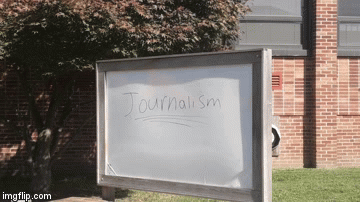Teaching about life after working with the dead
October 30, 2019
Everybody around the dead body hid behind their surgical masks, holding their breaths.
The light illuminated the deceased, exposing his pale skin. The excruciating sound of the scalpel cutting skin filled the room, and the stench of entrails burned through the medical masks and stunned eyes of the forensic anthropologists.
The cause of death: falling approximately 12,500 feet through the air. The poor man’s parachute didn’t open, and neither did his eyes ever again.
This is one of many stories that former forensic anthropologist Nicole Nuckley tells her ninth-grade biology class, capturing their attention.
“High school students are much more fun than dead people,” she said, explaining her transition to teaching.
She had spent the beginning her scientific career working in a morgue in King County, Seattle, where she performed several autopsies a day
Nuckley said that people who work in morgues have certain mentalities that make them different from other people with “normal” jobs. She said that most people that work in morgues are people who are curious and want to make sure every question is answered to ensure that their job was done efficiently.
Since burying a loved one with no knowledge of how they died could be devastating, she said that the job helps to bring moral justice to family members and friends of the deceased.
Working at a morgue was a job former forensic anthropologist Nuckley wanted to have since her college days. She also had a love for teaching and implementing her current knowledge and experience at the morgue to the classroom setting.
This started after she started pursuing her PhD. in the sciences where the option of doing additional research or teaching teaching was posed. She also had to write a dissertation. Without hesitation, Nuckley chose to teach and immediately fell in love with it. Nuckley slowly drifted from her life at the morgue and quickly hopped into the life of teaching.
She ended up leaving her job at the morgue because of how depressing the environment was.
“It became routine, and that’s part of the reason I left, When you see that much tragedy, and it becomes routine to you, you become black inside,” she said. Teaching is the job that she loves.
Nuckley had many experiences during her time in the morgue that turned her into the teacher that she is today, “Well, I’m not afraid of anything,” she said. “So you put me in a room full of students, trust me I’ve seen worse.”
Also her experience at the morgue allows her to implement a creative aspect into her style of teaching because the biology classroom setting is a reflection on what the real scientific field is like, and even though she claims that not everyone will have a career in science it is still good to have an understanding of what is happening around you in the scientific world.
Eventually Nuckley started her career in our educational system as a substitute teacher, and her students adored her.
So much so that she landed a role as one of the biology teachers for the Glen Rock High School, where she still works today, teaching chatty high school students, doing what she loves, as well as scaring students with her chilling tales of the morgue she worked at in King County Seattle, Washington state.
A place where the weather is always gloomy and bodies roll in like tumbleweeds through an empty desert.



